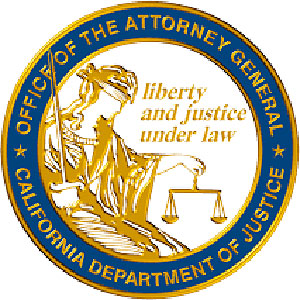On April 11, Attorney General Rob Bonta announced statewide guidance on school districts’ legal obligations and best practices when considering school closures, including mergers, and consolidations.
 Since the Covid-19 pandemic began in 2020, the state has seen enrollment decline sharply then steadily, and because state funding for schools is based on enrollment, this will bring challenges once extra Covid-19 funding dries up. At first, this would mean layoffs and cutting programs.
Since the Covid-19 pandemic began in 2020, the state has seen enrollment decline sharply then steadily, and because state funding for schools is based on enrollment, this will bring challenges once extra Covid-19 funding dries up. At first, this would mean layoffs and cutting programs.
If declining enrollment persists, communities are faced with the prospect of school closures, including mergers, and consolidations.
For families, students, and staff, losing a beloved neighborhood school can upend livelihoods, and cause educational disruption and emotional distress. Students may have difficulty transitioning to a new school community, have to travel farther distances, or experience an increase in transit costs and time, exacerbating barriers to an equal education. These impacts are serious and can cause educational harm to students and their families.
Bonta said school districts that follow the legal mandates and best practices described in the 18-page guidance will take a step toward providing equal educational opportunity to all students, and begin to remedy the continuing harms of segregation.
The Guidance, he added, provides best practices to improve community trust and parent engagement and reduce a district’s legal risk before, during, and after the closure selection process.
School superintendents and members of school boards throughout California received the Guidance on April 11.
Bonta said it contains clear standards and procedures to establish a mindful community engagement process.
“Our 5.8 million public school students in California deserve an equitable and high-quality education,” he added. “We must proactively mitigate harm and ensure equity in our school system to help navigate this difficult process. I am committed to working with our schools and school board leaders to achieve successful outcomes for all our students.”
One little discussed reason for declining enrollment is California’s mandate for vaccines to attend public and private schools with exemptions for religious objections no longer allowed.
Anecdotally, parents have seen family friends move to states such as Texas or Florida, where parents have more say. Other parents have opted to homeschool younger children, and it remains to be seen whether they would return the children to public or private schools when they are older.
Under AB 1912, enacted in September 2022, financially distressed school districts are mandated to engage the community before closing schools. Deep community engagement is the best practice for all school districts, as it pays dividends beyond school closures. Increased parent and student engagement lead to better academic achievement and attendance, which in California leads to more funding for schools and the decreased likelihood of future school closures.
Under AB 1912, a financially distressed school district must also conduct an equity impact assessment before school closures, mergers, or consolidations and provide the public with the set of metrics or criteria proposed for closure decisions so that the public can provide input.
Additionally, existing California civil rights laws impose mandates for all school districts in California considering closures. The Guidance issued today explains these legal mandates and offers best practices for all school districts to take before implementing school closures to protect California’s students and communities from inequality and injustice.
•••
You can read a copy of the guidance at: https://oag.ca.gov/system/files/media/letter-school-districts-school-closures-04112023.pdf



